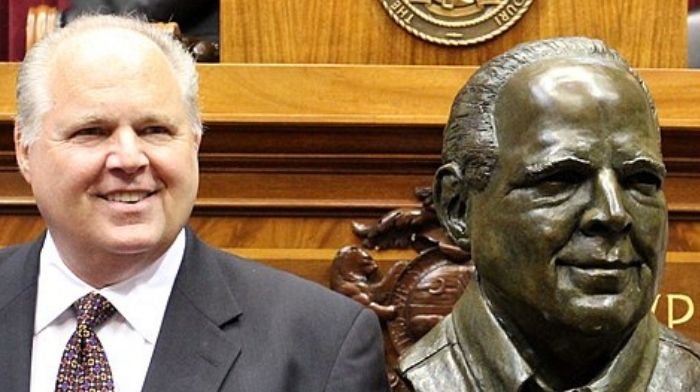Why We Must Protect Key Institutions From Partisanship
By Andrew E. Busch for RealClearPolitics
Except for a brief interlude in the 1820s, partisanship has been a regular feature of American political life since George Washington’s time. Sometimes, as in the late 19th century and today, competition, and with it, contentiousness, has been fierce; at other times, more muted.
Eventually, norms developed that placed a hedge around partisanship in certain important respects. In particular, it came to be understood that the institutional manifestations of two of the most fundamental principles of the American system – the rule of law and consent of the governed – had to be insulated from partisanship as far as possible.
Consequently, those entrusted with enforcing the law, and with administration of elections, occupy a unique place in American government. Though often coming to their offices through partisan elections in which they run as Democrats or Republicans, government prosecutors and election officers have for years cultivated a professional ethos that kept their partisan identification at arm’s length.
RELATED: Democrat Rep. Eric Swalwell Still Spending Campaign Funds On Glitzy Lifestyle, FEC Records Show
(This is one reason that secretaries of state, though holding statewide office, rarely make successful candidates for U.S. Senate.)
The current moment of partisan polarization threatens these important norms. Americans frequently decry individual instances when they perceive nonpartisan norms to have broken down. Seldom do they put all the pieces together.
Nevertheless, one reason for Americans’ increasing political discomfort — the feeling that politics has become a blood sport in which traditional protections and safety nets are no longer present — is that the nonpartisan insulation protecting the rule of law and consent of the governed has frayed. There is a broad pattern of offices that require political neutrality being converted into offices that are genuinely partisan in their operation.
Partisanship And The Law
From top to bottom, the administration of justice has been significantly politicized over the last few decades. Every level has faced different issues; all have experienced significant deterioration in the norms of partisan and political neutrality that once guided them.
Support Conservative Voices!
Sign up to receive the latest political news, insight, and commentary delivered directly to your inbox.
At the top, the Justice Department has increasingly been, as its critics like to say, “weaponized.” Of course, under J. Edgar Hoover, the FBI was an instrument of dubious political enterprises, but on an alternately partisan basis. It spied on the Black Panthers and Barry Goldwater alike, served both Lyndon Johnson and Richard Nixon.
The course of the Russia investigation, complete with the obvious biases of Andrew McCabe, Peter Strzok, and Lisa Page, implied that the bureau had picked sides. When the Justice Department inspector general’s office dinged the FBI for 17 procedural violations in obtaining a FISA warrant against Carter Page, it reported not finding political bias, but all 17 errors went in the same direction – against President Trump.
Today the FBI keeps close tabs on Trump supporters and (as it should) white supremacist groups, but recently acknowledged that it is not monitoring the ongoing terrorism of antifa, even after that group wreaked havoc in Portland, Ore., for months on end.
U.S. attorneys general have always had to straddle the line between their role as partisan appointees of the president and the nation’s politically neutral top law enforcement officer. Over the last century, most have been cautious about using their powers in ways that blatantly advanced their party.
RELATED: 9 Examples That Show Why Democrats’ Revised Spending Bill Is Still Awful
When he found no evidence for President Trump’s stolen-election thesis, Bill Barr resigned rather than pushing the matter further. Merrick Garland, on the other hand, has already used the Justice Department to advance his own party’s version of the stolen-election story by suing to stop state legislative efforts to enhance ballot security, then threatening to sic the FBI on parents who complain to their local school boards about left-wing political indoctrination in the classroom.
The Justice Department is far from the only concern in this area. State attorneys general from both parties have become hyperactive in challenging federal policy when their party is not in the White House. When Barack Obama was president, multiple Republican AGs sued over the Affordable Care Act, Obama’s immigration orders, and other matters. During Trump’s presidency, Democratic AGs sued to stop his immigration orders, modifications to Obamacare, and other steps.
Texas AG Ken Paxton took four other states to court on the eve of the vote by presidential electors on the grounds that those states violated the Constitution by changing election law without permission of their legislatures. Now that a Democrat is in the Oval Office again, Republican attorneys general are back at it, suing en masse to fight Washington.
Many of these lawsuits have had merit, but Americans might be forgiven for wondering if their attorney general cares more about scoring political points for his or her party than evenhandedly enforcing state laws. That prospect must be particularly troubling for those with allegiance to the opposition party.
Not least, at the local level, many Americans have awakened to discover that their state district attorney is committed for ideological reasons to refusing to enforce the law. Criminals are being set free and crimes are not being prosecuted while “prosecutors” congratulate themselves for reducing incarceration rates.
In lieu of enforcing laws vital to public safety, some ideological Democratic DAs have turned their prosecuting energies against cops and ordinary citizens who sought to defend themselves against threats to their person.
In Kenosha, Wis., and St. Louis, DAs have ignored state laws designed to shield those exercising self-defense; in Atlanta, the officer who shot Rayshard Brooks after Brooks fired his stolen Taser at him was charged with murder by a DA who, only a few weeks earlier, had declared that Tasers should be considered a deadly weapon (when it was a police officer firing it).
Partisanship And Elections
If it is essential that the prosecution of the law not be seen as tainted by partisanship or ideological animus, it is no less essential that the administration of elections be seen as (and actually be) neutral between the parties. From secretaries of state down to county clerks, election officials have long sought to cultivate an ethos of disinterested professional administrators.
They have understood that the confidence of the voting public requires that they act with scrupulous evenhandedness. Most still adhere to those norms, but over the past decade national Democrats launched a concerted campaign to take over as many secretary-of-state positions as possible, seeing them as strategic assets.
The 2020 elections cast further doubt on the image of election officials and offices as functionally nonpartisan. Two developments were important to those doubts.
First, in the months leading up to the election, state and local election officials in many jurisdictions played along with so-called collusive lawsuits or sue-and-settle charades, in which lawyers for the Democratic Party or progressive advocacy groups sued to change election rules on the basis of the COVID emergency.
Rather than defend the law in court, the (mostly Democratic) election officials would settle out of court, giving the plaintiffs most or all of what they wanted.
Then came the flood of “Zuck Bucks” – the $400 million in grants funneled to election offices by Mark Zuckerberg’s Center for Tech and Civic Life. Little-noticed at the time, these grants have gradually been dragged into the sunshine after the election.
The vast majority of the money went to election offices in Democratic counties; more than half went to four swing states. Grants were typically conditioned on a requirement that the office coordinate with a left-leaning advocacy group. In at least one case, in Milwaukee, the liaison from the group took over operation of the election office.
Thus, local election offices in key counties were transformed, as John Fund and Hans von Spakovsky have characterized it, into get-out-the-vote headquarters for the Democratic Party.
Where To Go?
There are good reasons why Americans developed functionally nonpartisan norms for bureaucracies responsible for prosecution and election administration. Without neutrality in those endeavors, neither individuals nor the polity are safe from arbitrary rule.
We have already seen the consequences when large numbers of Americans are not confident in the evenhandedness of election administration, and politicized “justice” is a recipe for corruption and tyranny, as countries the world over can attest.
Going down this road – trying to grab every possible advantage by seizing ground that was once off-limits – is a temptation for partisans convinced that their opponents are evil and frustrated by the extended stalemate of contemporary American politics. But it is a temptation that must be resisted.
RELATED: First NYC Now LA: Vaccine Mandate Could Cause ‘Mass Exodus’ From Police Force
There are piecemeal steps that can stop, or even partially reverse, the deterioration we have seen. State legislatures can pass laws prohibiting private funding of election administration; alert governors can sometimes stop politicized prosecutions by local district attorneys; the U.S. attorney general can, as Bill Barr did, resist presidential entreaties to politicize his office, though it might cost him his job.
In the end, though, the only lasting solution is for American voters to elect presidents, legal authorities, and election administrators who understand that, even in an otherwise-polarized environment, there must be limits to partisanship.
Syndicated with permission from RealClearWire.
The opinions expressed by contributors and/or content partners are their own and do not necessarily reflect the views of The Political Insider.






